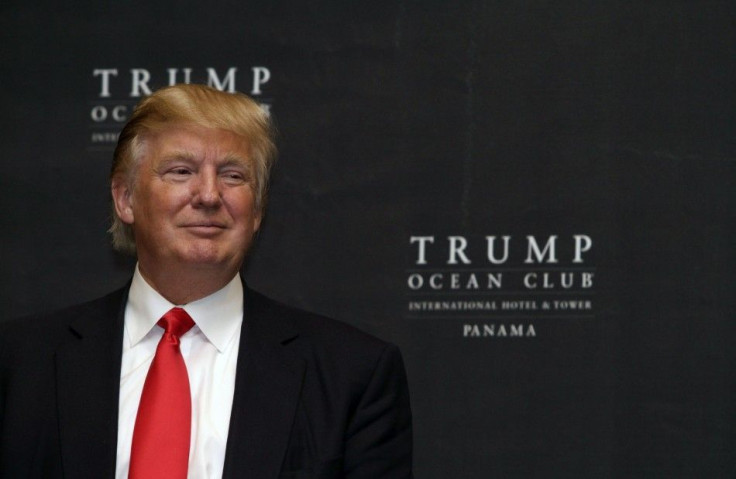For Trump, Brand is as Important as Buildings
Analysis

Revelations that Donald Trump's brand value is $3 billion of his total net worth of around $7 billion underscored the mogul's shift away from real estate.
Trump's wealth initially came from the real estate portfolio of his father, Fred, who amassed around $400 million by the time of his death. But in recent years, the mogul has turned to reality television and licensing agreements that emphasize the Trump name. And while his soaring skyscrapers and flashy casinos may be his most visible icons, they're only a piece of his vast media and business empire.
The rest of Trump's wealth includes $270.3 million in cash and securities, $3.2 billion in real estate wholly owned by Trump, and over $900 million in partial stakes, according to his book, Time to Get Tough. Brand valuation company Predictiv determined the $3 billion brand value, said Trump.
Earlier this year, Forbes estimated Trump's wealth at $2.9 billion, including his brand value at around $200 million.
As Trump has moved toward media and politics, his stakes in real estate have shifted. Instead of being the lead developer of new buildings, Trump is often the figurehead. Sometimes, he has no actual ownership in buildings that bears his name. The Trump brand has lent identity to projects in a high-end real estate market, with developers hoping that the Trump aura will distinguish their buildings over more obscure names.
In downtown Manhattan, for instance, Trump lent his name to the Trump SoHo, a glassy tower that dominates the neighborhood in scale. But while the Trump name is ubiquitous in the building's marketing materials, he doesn't actually have any equity in the project -- the primary owners are the Sapir Organization and Bayrock Group.
Still, the move has its downsides, as Trump is a very polarizing figure. During the contentious approval process for the Trump SoHo, preservationist Andrew Berman called the building a 45-story monstrosity.
Because the area is not zoned for residential use, the Trump SoHo is a condo-hotel, which allows people to buy apartment units, but limits the number of consecutive days that they can live in the units. At other times, the rooms are rented out and the owner can receive money. In the wake of the real estate collapse, some buyers pulled out and others filed lawsuits against the developers, although recently the building has been selling more units.
Trump's association with more troubled projects has led to more severe legal problems. In May, the New York Times investigated Trump's branded condo projects, some of which he does not own, but rather licenses his name for a fee.
When some projects stalled following the recession, buyers lost their deposits and sued Trump for misleading them about his involvement in the project. Buyers told the Times that they were enticed by what appeared to be Trump's personal involvement in the projects, which gave them confidence. When the projects collapsed, the buyers said they felt betrayed.
Trump's for-profit schools have also been targeted by the New York State attorney general's office after former students complained about business practices.
Although Trump appears to be well-capitalized, and he's already survived previous bankruptcies, such lawsuits present a new challenge for the media chameleon. But as Trump's no doubt aware, expanding his name beyond the certainties of brick and mortar presents certain risks -- but has also led to lucrative opportunities.
© Copyright IBTimes 2024. All rights reserved.





















